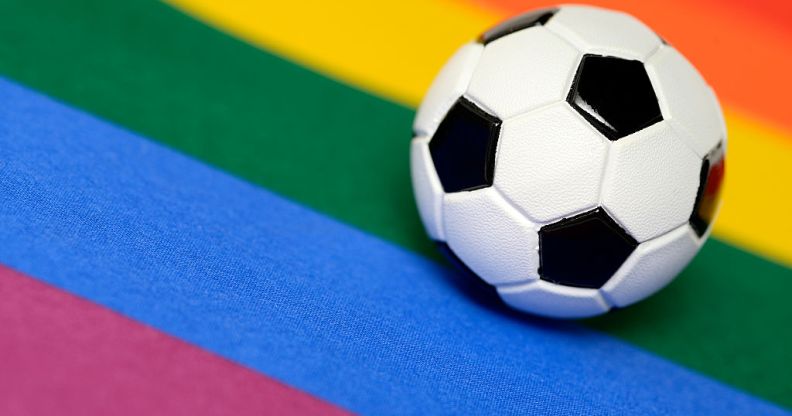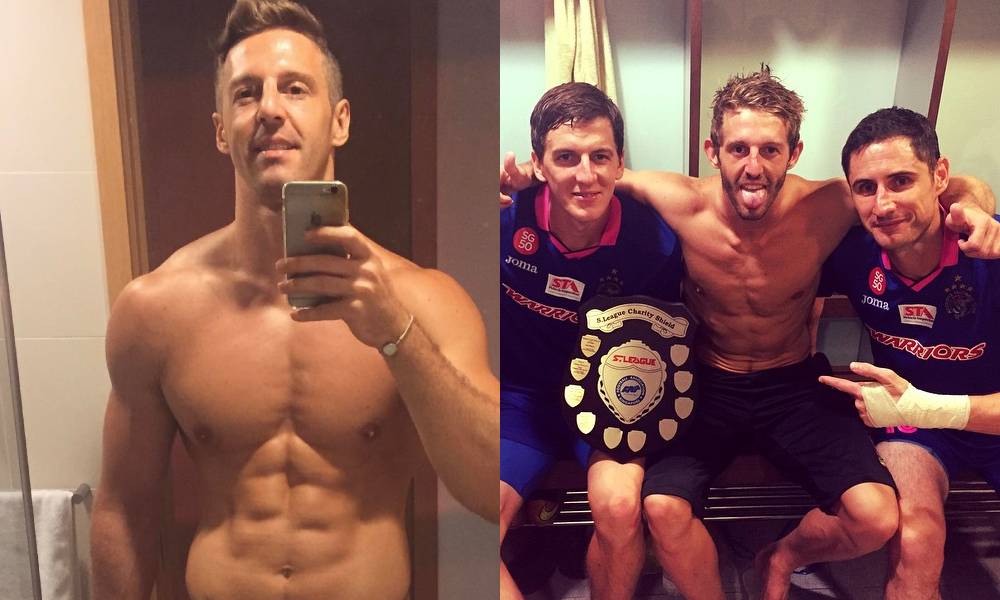Homophobic football chants finally set to be outlawed as government admits ‘dismay’ at slow progress in kicking out hate

(Christian Ohde/McPhoto/ullstein bild via Getty)
The British government is finally moving to make homophobic football chants illegal as lawmakers admitted to their own “slow progress” on the matter.
Squashing homophobia has long been left for individual football clubs and stadium organisers to handle, being that legislation around public disorder during games doesn’t include anti-gay abuse.
But the Department for Digital, Media, Culture and Sport Thursday (July 23) detailed plans to tinker the Football Offences Act 1991 to make hurling homophobic slurs — which monitoring groups say are on the rise — illegal.
In a report which reviewed the impact of the deadly coronavirus on sport in Britain, 11 cross-party MPs “recorded their dismay at the slow progress in kicking out homophobia from football”.
“MPs would seek to continue work of the predecessor Committee to amend the Football Offences Act 1991 to make homophobic chanting at matches illegal,” the report said.
Homophobia is stopping gay footballers from coming out.
The department previously invited Eniola Aluko, sporting director at Aston Villa Women, to to discuss the worrying lack of diversity in sport.
She claimed that a number of Premier League footballer have come out as gay to team members while continuing to hide their sexuality in public.
“I think there’s been rumours and all sorts of newspapers that try to get the exclusive on who this player may be,” she said.
“Ultimately I think there’s statistics that say of course there would be gay players, and I think the beauty of it is actually 99.9 per cent of players would say ‘I wouldn’t care if my teammate was gay’.
“The issue really now is that fear of what fans will do and are going to say, but I don’t think that is as legitimate a fear as it used to be because we’re living in a world now where being gay is something that is widely accepted.”

Thomas Beattie came out as gay in June. (Instagram)
Days later, an alleged gay Premier League star penned a letter where he said the pervasive prejudice in football is the thing stopping him from coming out, living his life authentically and having a partner of his own.
The move to gut the sport of homophobia will no doubt be welcomed by gay former Welsh rugby captain Gareth Thomas, who once urged prime minister Boris Johnson to tackle the “black hole in the law” around homophobic football abuse.
Thomas Beattie recently became the second English major league player to come out as gay, in June.
The midfielder echoed Aluko’s words, saying that the spectre cast by the abhorrent treatment of Justin Fashanu — the first professional player to come out as gay who died by suicide in 1998 — as well as a fanbase “sheltered” from diversity, has stopped many more players from coming out.
Among the few international players to have come out at the top of the sport are Robbie Rogers, an American who came out weeks after being released by Leeds United, and Thomas Hitzlsperger, a German who played for many English clubs, who came out after retiring.

